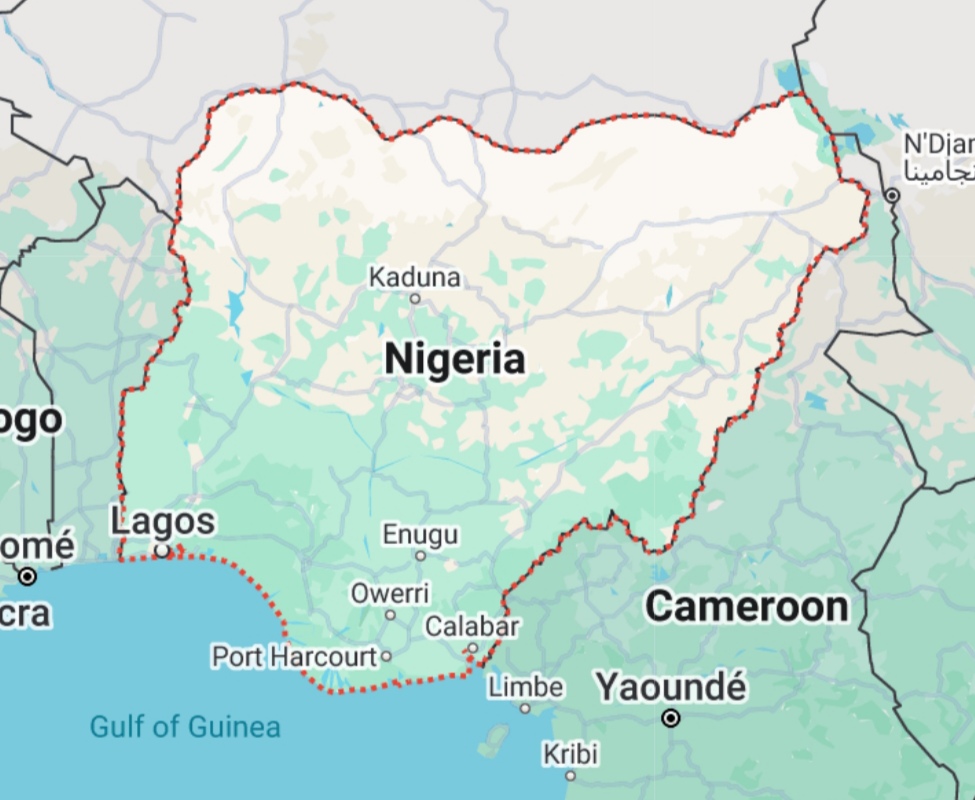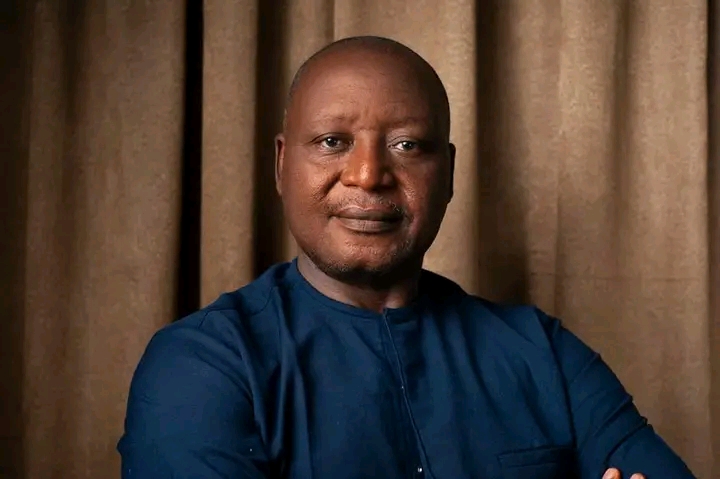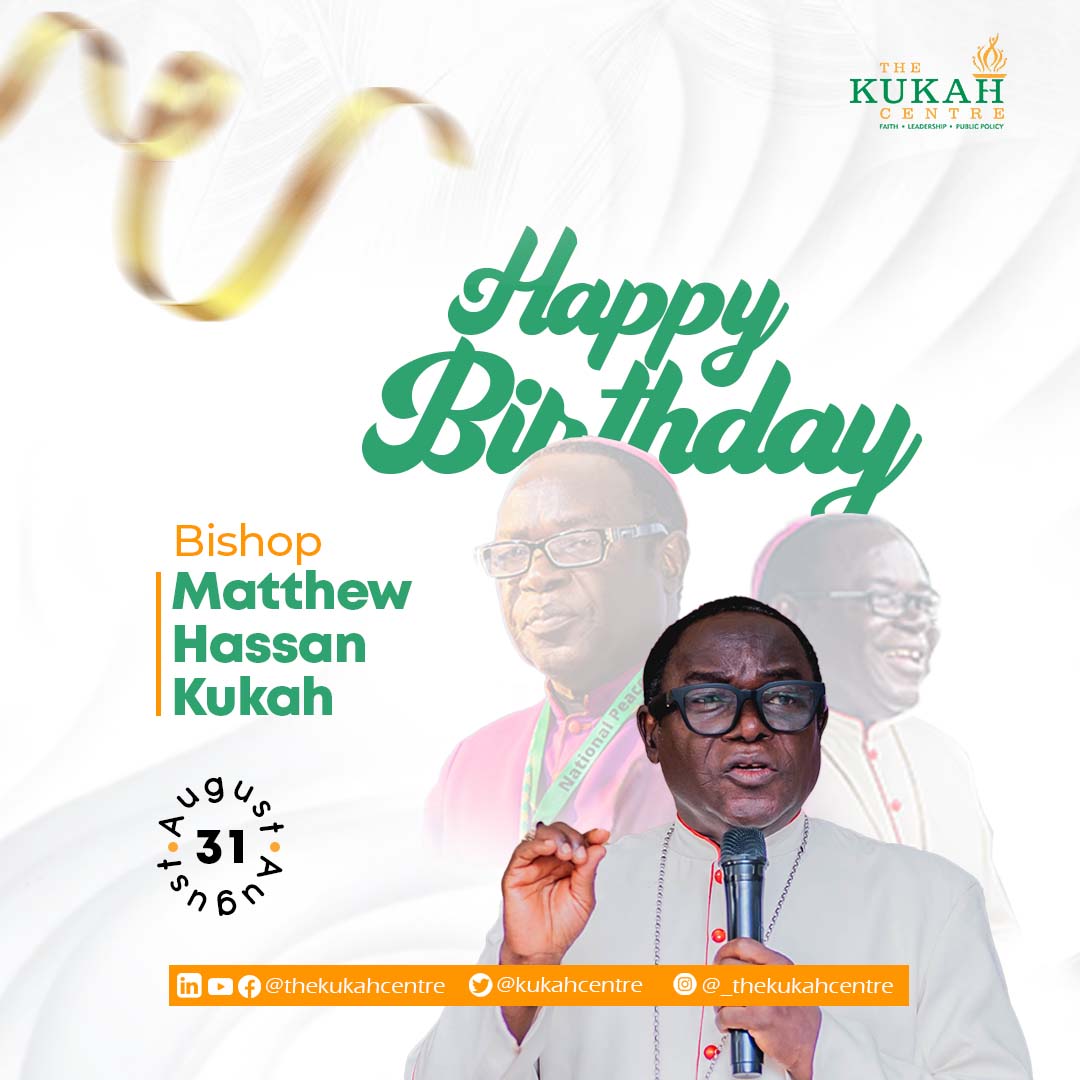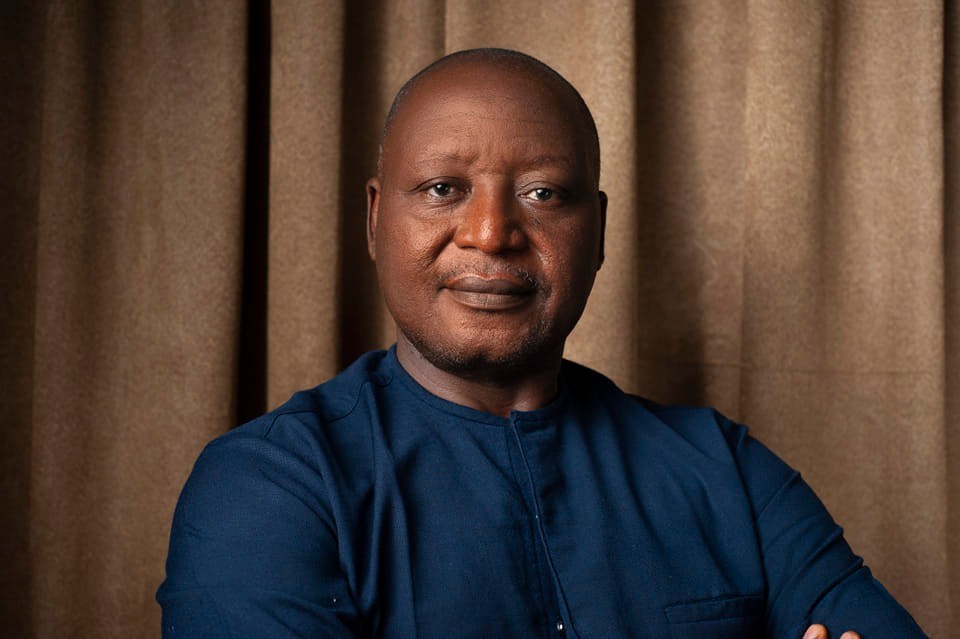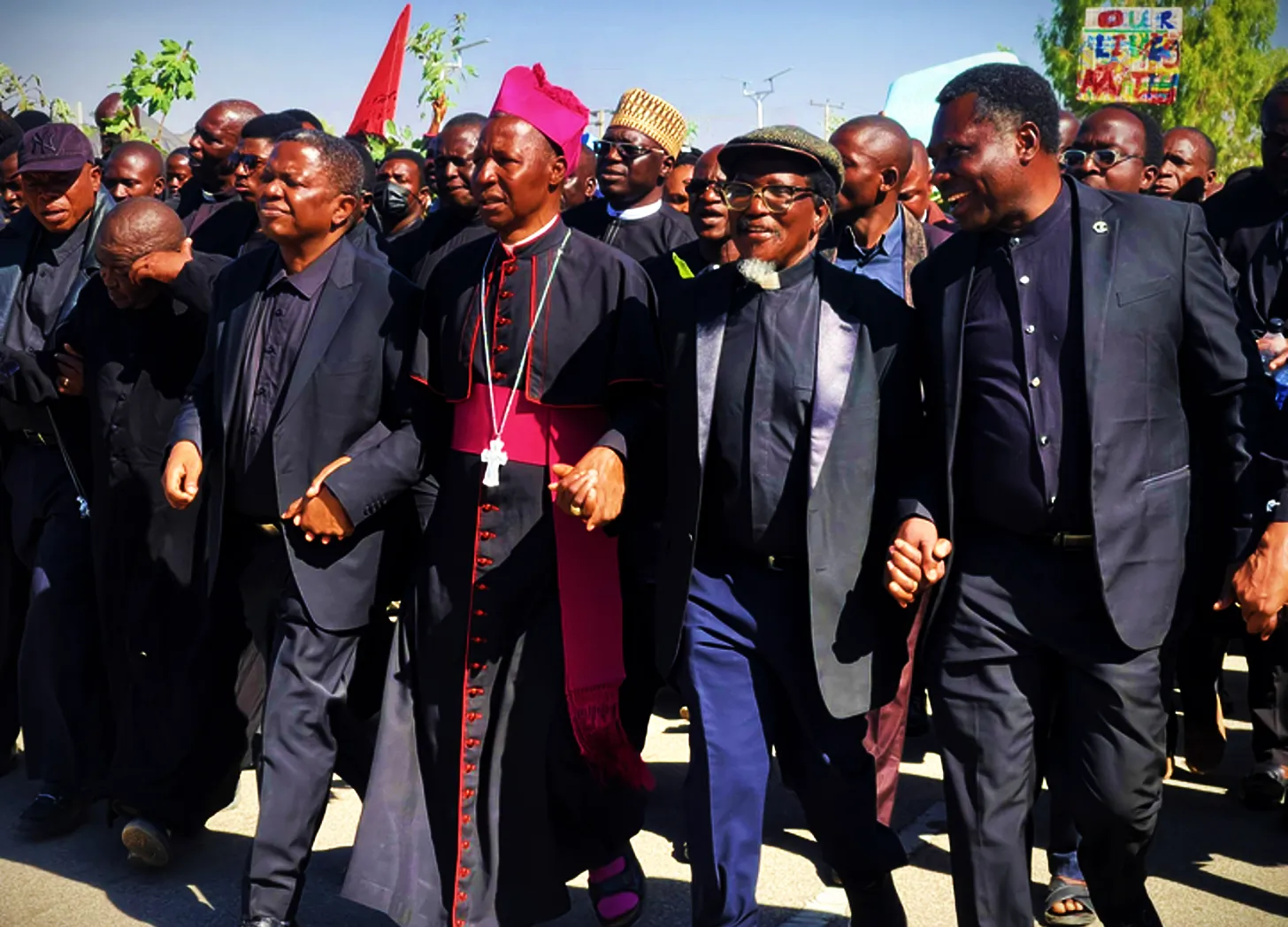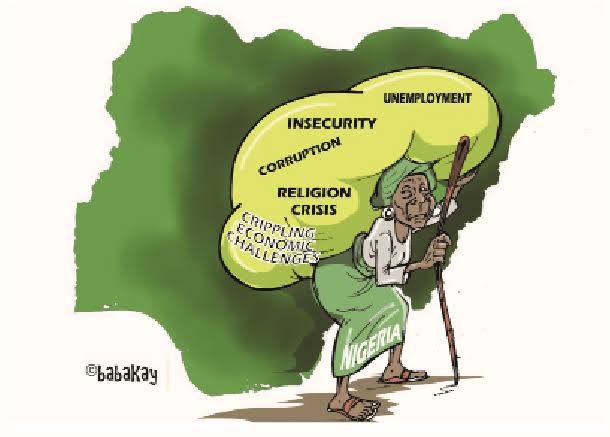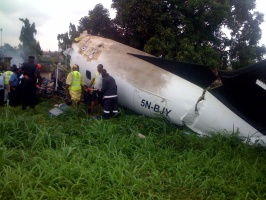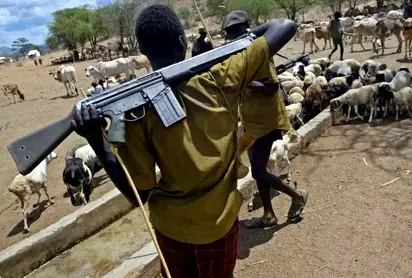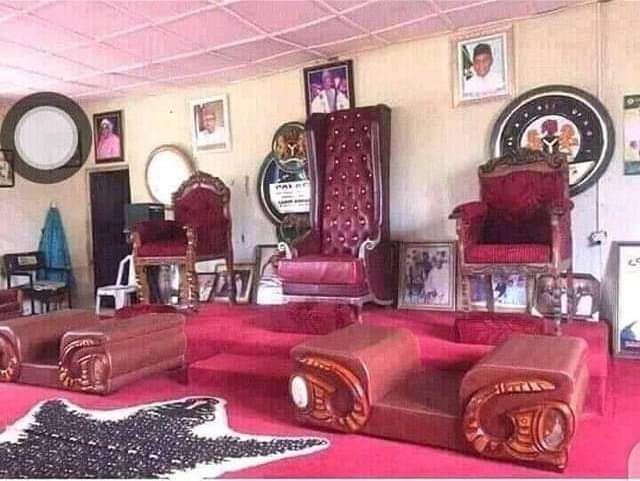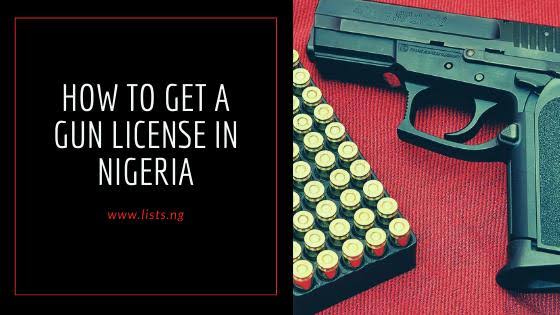…unearthing the ethnoreligious conquest of Africa’s largest democracy from Dan Fodio’s 1804 jihad to Tinubu’s 2023 jihad
In 2014, terrorist group Boko Haram’s infamous schoolgirl mass abductions spawned the trendy #BringBackOurGirls campaign but it had even more seismic unexpected effects in the global jihadi spectrum.
First, Al Qaeda, still the world’s top terror group, condemned the northern Nigerian Islamists for the mass kidnaps of almost 300 Chibok schoolgirls. Next, the Islamic State in Iraq and Syria (ISIS) began to emulate and then compete with Boko Haram for ruthlessness. Then in 2016, Boko Haram and ISIS merged creating ISWAP (Islamic State in West Africa Province), a marriage of two groups that had alternately been ranked deadliest terrorists in the world!
My visit to Islamic State in Nigeria (ISIN) in 2023 was not to the non-state actors’ territory on the fringes of Nigeria’s border with Chad.
It was to a new and disturbing “merger and acquisition” political alliance that placed Nigeria’s democracy, the world’s largest country with an equal population of Christians and Muslims, on the precarious path to Islamization.
In February’s presidential elections, President Muhammadu Buhari found himself in the best position he could possibly hope for.
Ex-dictator Gen. Buhari ignited religious politics when he declared in 2002 that an infidel should never again rule Nigeria which was his only ideology for his subsequent serial runs for office.
Once finally in power in 2015, he perpetrated not just Islamization but “Fulanization” of the government, even to the exclusion of other northern and southwestern Muslims who’d turned an admitted “unelectable religious bigot” (their prior descriptor) to Nigeria’s worst misruler.
His ruling party’s succession candidate Bola Tinubu helped Buhari achieve his ideology of non-infidel rule by running on a Muslim-Muslim ticket (as a SW Muslim with a NE VP) which was celebrated in the north by Governors and clerics as fulfilling their jihad quest in Nigeria.
Buhari had thus set up a Muslim-to-Muslim 8yrs+8yrs succession hegemony rather than a southern Christian power rotation as was the convention in national politics.
If main opposition party PDP won, a Fulani Muslim Atiku from his paternal tribe would continue 16 unbroken years of Fulani presidential rule. If his ruling party APC won, a Kanuri Muslim from his maternal tribe would be Vice President and continue 16 unbroken years of Muslim APC rule.
Both Buhari’s parental Fulani and Kanuri stock spawned jihadi militia whose gruesome atrocities simultaneously earned them first and fourth deadliest global terrorists by the Global Terrorism Index.
Although Peter Obi was the main non-Muslim outlier who shocked the system with a third-party run, even the remote possibility of his emergence would have given Buhari another Fulani VP in power providing an unbroken Northwestern Fulani in the Presidency/VP for 33 years (from Pres Yar’adua in 2007) or an unbroken Fulani rule for 40 years (from re-inception of democracy in 1999 with NE Fulani Atiku.)
In the end, under extremely dubious circumstances, Bola Tinubu, the SW Muslim candidate of Buhari’s party was declared elected in an election that terribly divided the country’s fragile unity even further.
It would have seemed that the solitary Fulani nomadic tribe that used and abused religion to conquer fellow Muslims in jihad in 1804 and is again abusing it still to dominate other tribes they couldn’t conquer precolonialism has temporarily lost power but the reality is more sinister.
The same Southwest-North coalition that starved 1Million Southeastern Christian Igbos to death during the Biafran civil war of 1967-1970 was essentially reestablished by Tinubu (without the Christian middlebelt mostly) as an Islamic political alliance/hegemony – the ruling APC.
Ironically, the predominantly Christian Igbos who were bombed and starved to death are more developed today than the north who bombed and starved them! Power has done nothing for the north but yet the Islamic political alliance once again foreclosed the Igbos’ aspirations for the presidency via Peter Obi in 2023.
Igbos have been great contributors to national development in contrast with the north. The Fulani imperialists brought little development. Till date their militia kill and pillage infidels like they did 200 years ago except they now use bikes instead of horses and AK47s. Pillaging and looting is not a sustainable development model.
The British imperialists brought systems and institutions along with reasonable looting. Yet the Igbos who never colonized Nigeria, were egalitarian and not imperialists, have produced more value added communal and national wealth and enterprise than the Fulani colonizers.
The Igbos are a naturally prescient group whom the country has failed to optimally leverage for national upliftment. If not that SE governors have generally been the worst-performing, their region would be unmatched but still individual drive and industry has made more millionaires out of the region the rest of the country starved to death (One day that story will be told to an amazed world.)
Nevertheless it should be clear that one invading tribe cannot dominate a nation of over 500 ethnic groups like that forever. The Dan Fodio invasion of 1804 was reprised in 2014 with another invasion orchestrated by Gen. Buhari. Dan Fodio was a great tactician and Nigeria’s highly educated elite being subservient to his 200 year old expansionist playbook and his less brilliant acolytes is a testament to his enduring legacy. Buhari was incompetent to achieve his Islamist takeover until Tinubu gave him legs.
The Fulani Islamic jihad of 1804 and the British economic invasion subsequently were two sides of the same colonial/imperialist/supremacist ideologies masqueraded in religion and noble garbs.
Britain completed the failed annexation of non-Muslim tribes by the Fulanis and donated said unconquered tribes to them at the faux independence in 1960.
This faulty foundation is attributable to both the Fulani and British conspiring colonialists which contrived this country contraption. When the first Prime Minister, Ahmadu Bello vowed to dip the Koran in the Atlantic, the British were his main facilitators post-jihad and Tinubu merely brought the Atlantic to the jihadists via his political merger thus bypassing the formidable middlebelt and southeast bulwark buffering them for centuries. Who would have thought that in this day and age, the path forward for Nigeria emanating from Lagos of all places would be the ethnoreligious alliance called APC?
Hundreds of Buhari’s killer mobs during the 2011 Post-Election Violence were arrested and prosecuted. However, when Buhari came into office in 2015, they were freed from prison.
Before the 2015 elections, Buhari and co had brought in significant Fulani reinforcements from the west African subregion to saturate Nigeria and violently overtake her if he didn’t win the election. Tinubu’s Islamic alliance and President Jonathan’s conceding the elections averted the violent plan but it left hordes of armed killers deployed around the country with no war to fight.
Tinubu has now appointed another Fulani as National Security Adviser who had publicly justified their killing of Nigerians.
“Former EFCC Chairman and former Presidential candidate of the ACN, Nuhu Ribadu has stated that the Fulanis in Nigeria feel marginalised and are not happy with Buhari.
Ribadu said the Fulanis are landless and are not well respected politically. He further revealed that the tribe feels abandoned by President Buhari and are completely out of everything.
“We forget that people who are landless will continue to be a problem and part of the problem we are facing today is these people fighting to say we are part of this country. They want a place of their own where they will be taken care of, but there is resistance. That is why you see what is going on in Zamfara, Birnin Gwari and most of the places,” he said.
“You can hardly see any nomadic Fulani man that is part of state assembly or the national assembly and they form about 15 to 20 million of the population and they are marginalised. They are not in any way benefiting from what is happening in the country today.” “ https://politicalstewng.com/fulanis-feel-marginalised-are-angry-with-buhari-ribadu/
Ribadu made these claims despite the fact that at the time 90% of Buhari’s National Security Council members were northern Muslims and predominantly Fulani.
We must never forget that at his inauguration in 2015, Buhari declared that Dan Fodio was the “founding father” of Nigeria – a historic anachronism because Nigeria did not exist in 1804 jihad.
Tinubu should be blamed for sacrificing the great Oduduwa and Oyo empires to an extraneous caliphate. Excoriating Igbos simply because they celebrated election victory against him in Lagos is nothing compared with the northernization of Lagos ports etc seen over the years (Of course it’s always easier to blame the victim than the real villain.)
Additionally, Tinubu’s people deployed witchcraft, fetish and juju against Igbos and non-Yorubas in the elections in Lagos alongside violence.
Given this background, I was unsure what to expect on my visit to Nigeria’s new Islamic state weeks after inauguration. Here’s what I saw:
- the new government in Kano state demolished a prominent sculptured roundabout built by the predecessor claiming it contained a Christian cross which is “anti-islamic.” The prior government made Kano the most extreme islamist state in the north with blasphemy lynchings and death sentences.
- the new government of Sokoto state justified the blasphemy lynching of a Muslim man from a rival sect. Barely a year before, his predecessor had condemned the blasphemy lynching of Christian Schoolgirl Deborah Emmanuel even though her killers’ charges were recently dropped.
- In Plateau state, 346 people were killed in three months and 32 villages destroyed by Fulanis but security forces disarmed local hunters and killed village watchmen claiming they were bandits. The prior government had appeased the killers who it appeared were now targeting the Mangu community of the new governor who succeeded them.
- In Benue state, 25 youths were slaughtered in a massacre by Fulanis even though the new state government is from the ruling APC party. The former governor had been blamed for massacres in the state because of his opposition to the APC’s mishandling of the insecurity.
- A Libyan-trained Nigerian jihadi convert, addressed the media from Tinubu’s presidential villa claiming that his “forces” were responsible for security more than the army. His Niger Delta militants had previously been disarmed and granted amnesty under a prior government.
It got worse. Days after winning election petition, Tinubu announced the carving out of indigenous lands in the states for building of Fulani enclaves – even where millions of victims of Fulani massacres are still displaced! His political state capture was rapidly following with physical “states capture”.
It is unclear how things will go from here but the security situation in the new Islamic State in Nigeria has not improved. This is despite the fact that Tinubu has consolidated power unlike anyone ever in Nigeria’s history.
Tinubu has co-opted Muslim mujahid Asari Dokubo’s South South Niger Delta militants, influencers of North East jihadi Boko Haram terrorists, cross country islamist Fulani militia, his Southwestern thugs & legitimate Nigerian federal security forces under his control – a massive consolidation of legitimate state and illegitimate non-state coercive forces. Only IPOB and ISWA are outside his control.
If Buhari’s 2015 influx of foreign Fulani fighters into Nigeria was the second invasion after the 1804 jihad, then Tinubu’s power consolidation in 2023 is the second amalgamation after the British colonialists’ of 1904. Tinubu imposed a Muslim Muslim ticket that even Buhari did not do and building Fulani rugas cross country that even the fanatical Fulani bigot Gen. Buhari didn’t do!
Tinubu was not good for Lagosians as Governor- a global cosmopolitan city ruled by thugs mafia-style – the same way the amalgamation of north and south Nigerian colonies into one nation was not good for Nigeria.
British imperialism, for all its pretensions versus intentions did do some basic good but what does Tinubu’s Islamo-mafia coalition portend and intend for Nigeria?
As Nigeria marks 63 years of faux independence, it is clearer now more than ever that the once proud and noble Oyo empire has been conquered and surrendered to northern caliphates that never conquered Yorubaland by a mafiosi who conned his way to power.
Emmanuel Ogebe, Esq, is a prominent US-based international human rights lawyer and Nigeria pro-democracy advocate with the US NIGERIA LAW GROUP in Washington. Last month, he marked the 27th anniversary of his abduction and torture by Gen. Abacha for demanding an investigation of the assassination of pro-democracy icon Kudirat Abiola over the June 12 election annulment. His advocacy led to the naming of Kudirat corner by Nigeria house in New York, the US designation of Boko Haram as a foreign terrorist organization and International Criminal Court Prosecutor’s determination of crimes against humanity in Nigeria amongst others.


